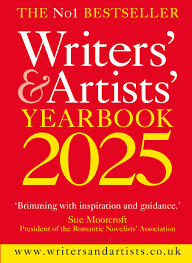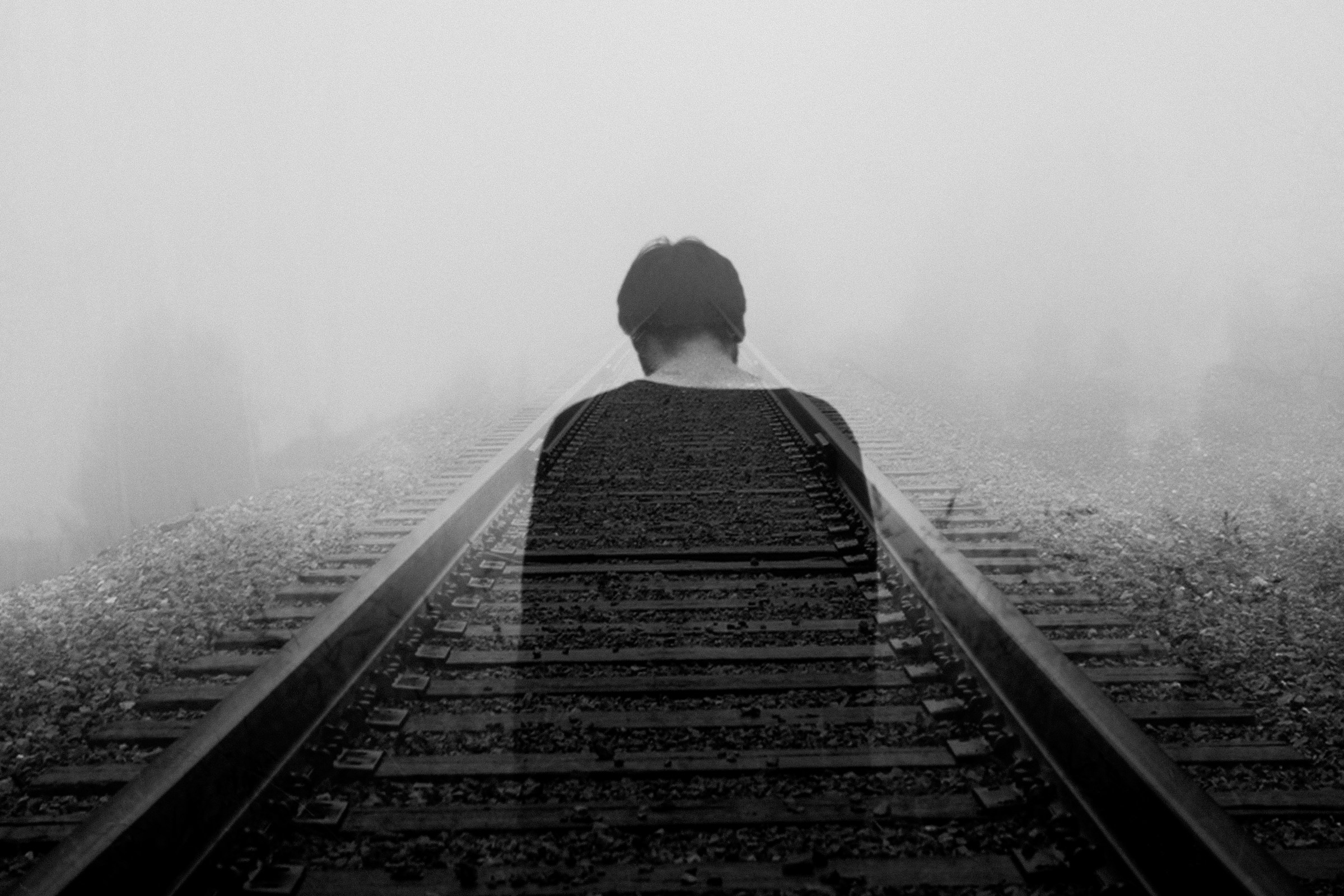Blogs in the series
More to explore

M is for Meaningless – a journey
By M Jonathan Lee - a six part serialisation of my life in writing
Part Five
Welcome to part five of my personal writing journey. If you’ve missed the first four parts, then you’ve already missed fifteen lessons that I’ve learned on my way to becoming an author of six published novels to date. How crippling mental health has both helped and hindered me along the way. My goal here is simple: I want to share my life with you all, so those who are still hoping to write for a living can maybe find something that will help them along what is a difficult and unsteady path ahead.
When the final manuscript of The Radio was completed, my editor Charlie and I sat down to discuss the next steps. The idea was to get published. But how? I’d made an earlier mistake of sending a raw and unfinished manuscript to the big hitters in the industry who’d made it clear it wasn’t for them. Charlie suggested that I should buy a copy of the Artist and Writers Yearbook. I’d never heard of it. Lesson Sixteen. For those of you yet to discover it, the A&WY is a book published annually which among other things lists all the publishers in the industry, their contact details and the types of books that they publish or are looking for. Everyone who is everyone is in here. So, instead of sending a novel randomly to publishing houses who couldn’t care less about vampire goth horror or historical fiction, you have the ability to research and shortlist the right publishers for you. You are able to pinpoint specific individuals at the publishing houses who may be especially interested in the type of novel you’ve written. You are now no longer randomly firing missiles off in all directions. You’re shooting fish in a barrel, rather than casting a wide net and hoping for the best.

I handpicked ten publishing houses and more so, targeted individuals to submit to. I wrote the perfect submission letter, something that is absolutely essential in this process. I sat back and waited. And while I did, I began The Page, a follow up to The Radio. There is an interesting back story to The Page which ties in neatly with one of my earlier lessons (see What If in Part Three as a reminder). I was lazing around the pool on holiday, when a huge gust of wind whipped up and stripped an old yellowed novel of most of its pages. The pages spread across the surface of the swimming pool and fluttered in the wind around me. One singular page stuck to the suncream on my chest. I read it immediately to find it was a Mills and Boon-esque romance novel, not at all my style. But then, I had a thought. What if the page described exactly what I’d been doing that morning, and what if when I flipped the page it told me something bad was about to happen to me. But I didn’t know what that thing was because I only had that singular page and nothing more. What if, now, I had to find the book it came from so I could read that next page and find out my fate. And so, a new story was born.
The Radio was flatly turned down by everyone I submitted it to. There was generally no feedback except thanks but no thanks. I was cheered by the fact that Stephen King was turned down many hundreds of times before finally getting published. I guess he ended up doing okay. I wasn’t put off though, after all a rejection doesn’t mean your work is shit. It just means that it didn’t fit with that person on that day. This stuff happens all the time, your outlook on things are affected by other external factors. Numerous times I have watched a film and not enjoyed it because I was in the wrong frame of mind. Numerous times I have rewatched that same film on another day and loved it. Lesson Seventeen, don’t get downbeat. Jeez, The Beatles were turned down by eleven record labels. J K Rowling was rejected dozens of times. Dust yourself down and keep going.

Its important to continue your craft while keeping an eye on what is happening in the publishing world. We’ve seen moments where bespectacled wizards are vogue. Vampire love is vogue. Young adult dystopian fiction is vogue. Fifty shades of shite is vogue. The artistic world always goes in waves and when one thing takes off, everyone jumps on board and wants to publish something similar by some ‘great up coming’ artist. Keep an eye on what is going on, read the publishing press – it’s not always your moment. Do not lose faith in your ability. A publishing house exists to make profit. Thus, they will choose novels that the powers that be believe will sell. And if everyone around them is selling a novel like the Hunger Games, then that is what they will buy and publish.
I stumbled into becoming published by doing just this. I read somewhere about The Novel Prize, a prize solely for unpublished authors. They wanted manuscripts that would be judged by a team of authors and industry agents: the prize being a publishing deal. Whilst The Page took its form, I decided that I’d enter The Radio. Why not, I had nothing to lose.
In my life outside writing, coincidentally I also had nothing to lose. By this time, I had moved in with the woman who would become my second wife. After perhaps five years of positive mental health, following the traumatic events of my early life (which was covered in parts one to three of this serialisation) things were taking a very difficult turn for the worse. I had previously thought that I’d emptied all the sadness of my past on to the pages of my first novel. I felt that the box in my mind (appropriately, my ‘mindbox’) had been emptied of all the darkness and fear, and resealed neatly. Now, it was suddenly overflowing again. Daily things would happen that would make me doubt everything around me. I’d return from work to find the faces of one or more of my children had been scratched out of family photographs. I’d be greeted at the door by my children upset because somebody had entered their room and destroyed their paintings or ripped up their books. My wife denied it. They were ‘doing it themselves’ for attention. Their intent? To get rid of her and her children. My children were ‘cruel’, ‘devious’, ‘jealous’, each word usually prefixed with an expletive. Every day my anxiety levels rose. I was not sleeping. Suffering panic attacks on the way to work. I was diagnosed with complex PTSD and depression. Leaving my bed each day was becoming more and more difficult. It was easier to lay beneath my duvet, a pillow wrapped around my head, rather than face what was happening in the place I called home. Doors slammed. People screamed at one another. It was like hell.

Again, my attitude slipped to utter irreverence as to whether life was worth it. But, I couldn’t leave my children. Not Yet. I needed to get it down on paper and repeat the trick before it was too late. I needed to empty my mindbox before it exploded. However, because I was functioning day to day at work and effectively dying each evening at home, I felt like two different people. And so, A Tiny Feeling of Fear was born. A novel I wrote in 12 weeks and is the most brutally honest book I’ve ever written. It, in itself, is a seventy-eight thousand word cry for help. But, I wrote it with an ulterior motive. I truly believed that even if it was too late for me, it would without question save somebody else. My agent and I found a publisher and it crested the wave of openness about mental health for some time. I received hundreds of positive reviews and perhaps my favourite sentence of any review I’ve ever received:
“a story with a crazy, jaw dropping twist that no one could EVER see coming, not in a million years.”
We made a documentary Hidden about the novel and my own mental health journey (you can see it on YouTube somewhere). From the documentary, a bunch of volunteers launched a Survivors Group for those affected by suicide. It was the only one of its kind in my home town, and years later still goes from strength to strength. All of a sudden, once again, writing had saved my life. The blurb from that novel states, and from the heart: “that the lead character (read, me) is being totally and utterly honest, and by doing so, he feels that it may just save someone else’s life.” Indeed, I’ve had a number of people contact me after reading the novel to say just that. For me, that is the only success I really need. Things were on the up.
And then almost two years to the day that A Tiny Feeling of Fear was published I found myself on a motorway bridge at 3.13am looking down at the rain soaked tarmac below.
Note from the author:
If anyone wants any clarity on anything written in this series please don’t hesitate to make contact. By arrangement, Richard can pass on my email address.
Jonathan